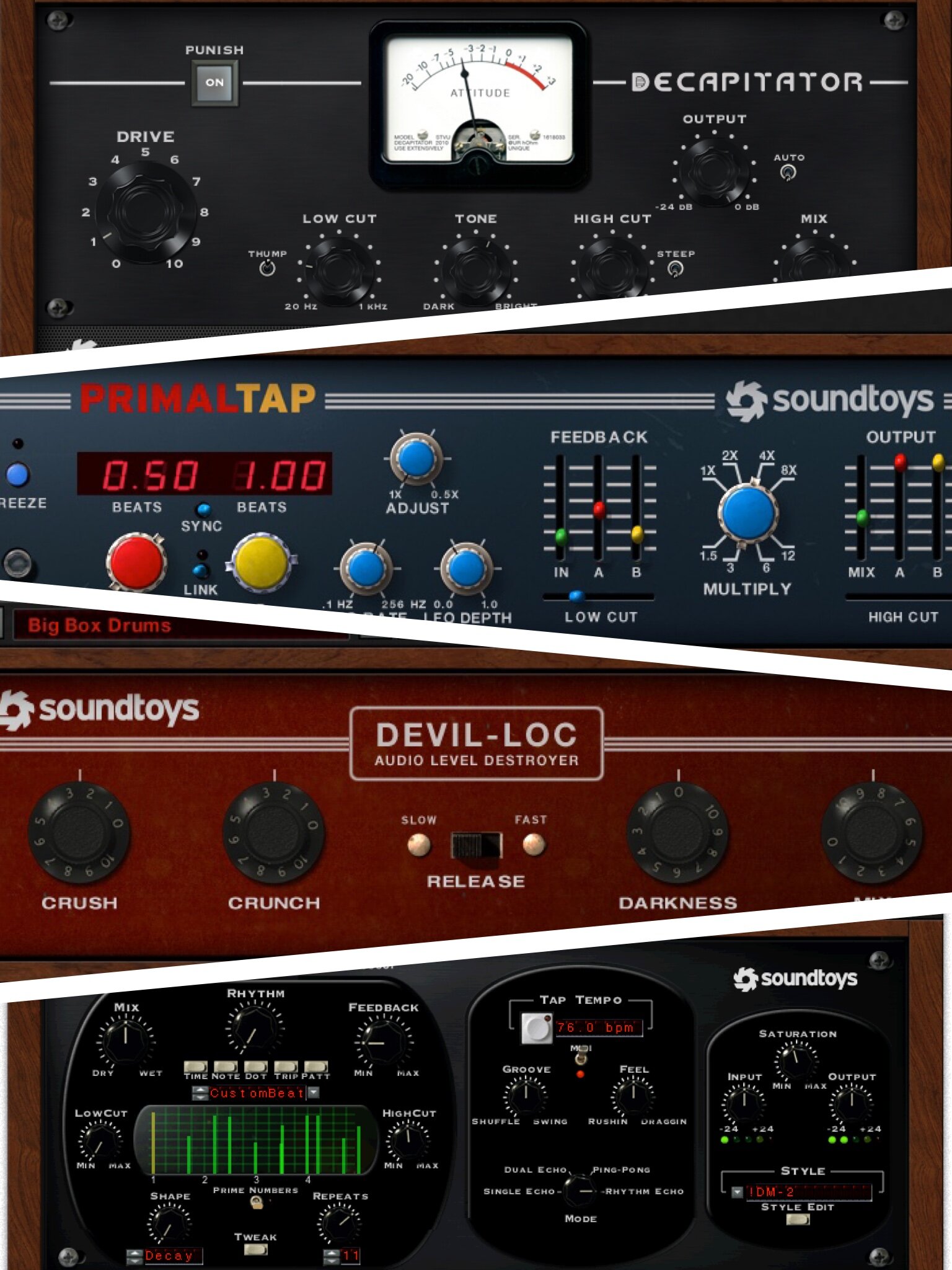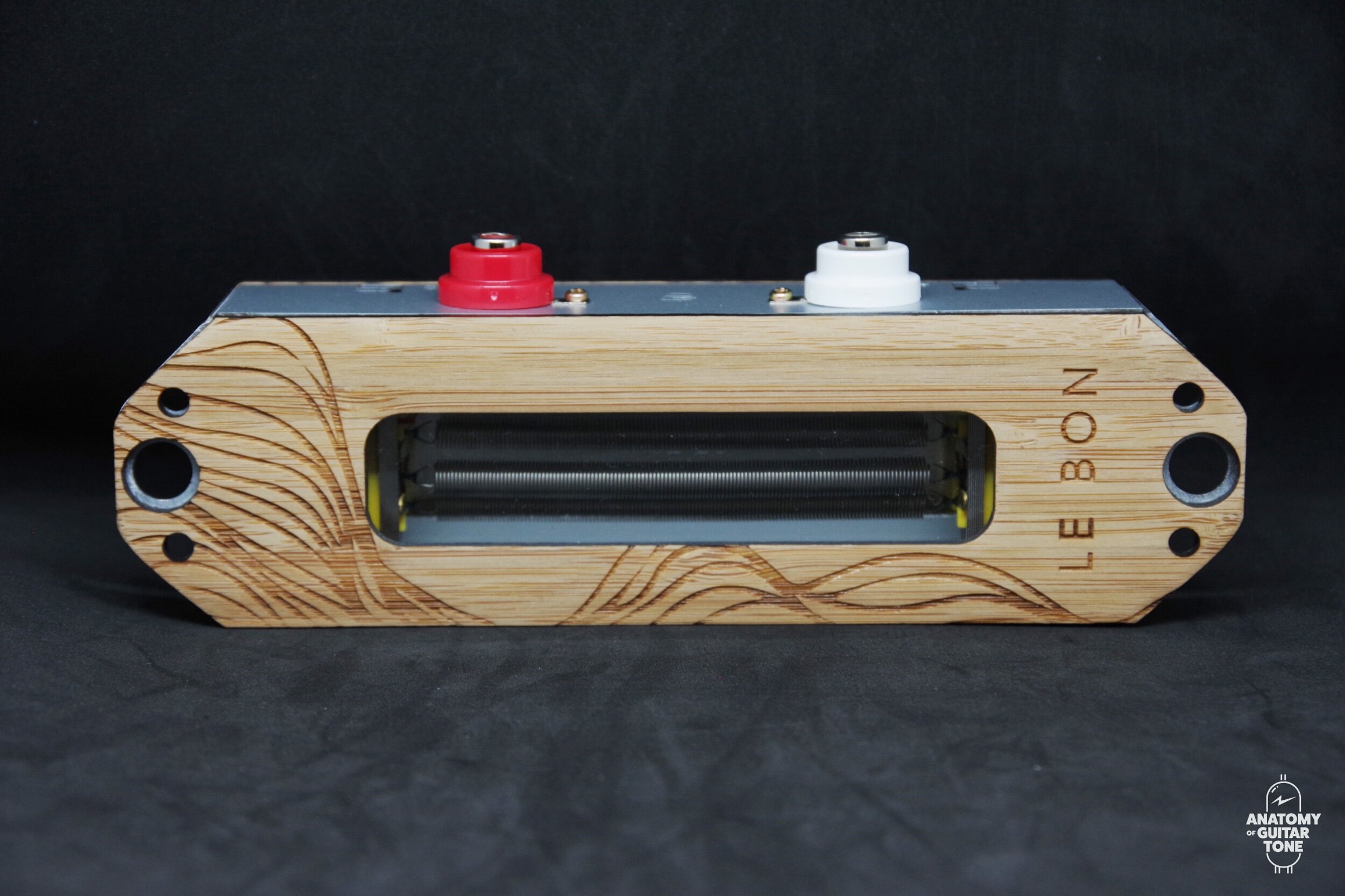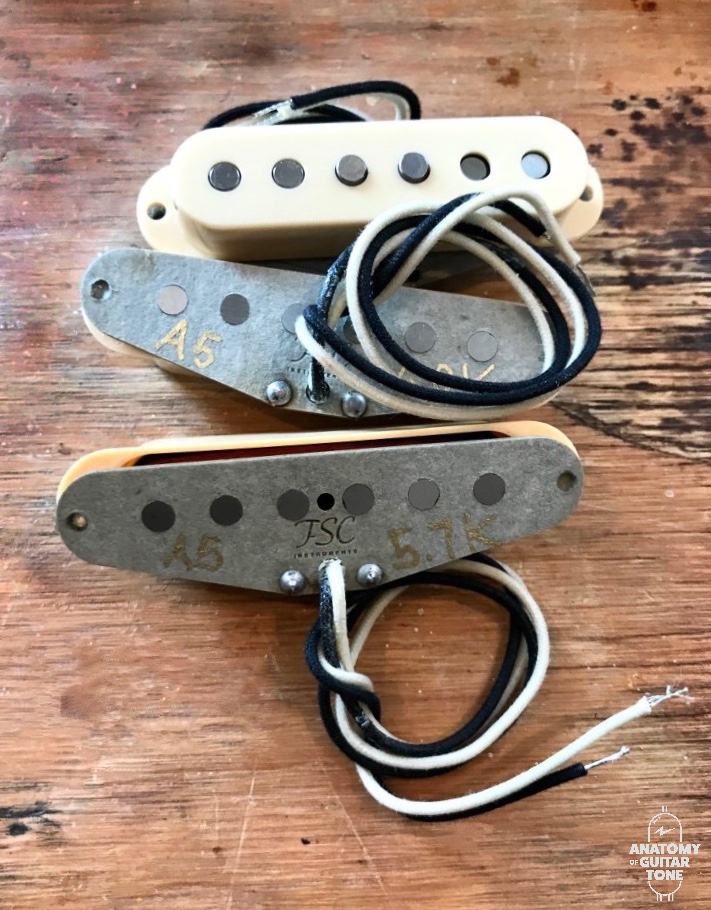A Brief but Complete Guide to Guitar Compression
Compression is one of the most confusing effects to incorporate into your guitar chain. It’s a misunderstood effect.
What a compressor actually does isn’t all that confusing. The difficulty is in its application.
Let’s start at the beginning. A compressor’s purpose is to even out your guitar’s signal. With a clean guitar, you will see peaks in the recorded sound. Lots of peaks and valleys. The transients pop out. The difference between those peaks and valleys could sound jarring or cause overload, depending on what you’re running your signal into.
Compressors were invented to reduce the distance between peaks and valleys. This allows for a more consistent sound and has benefits like preventing tape output from overloading and digital output from clipping.
Guitar Production: Soundtoys Plugins
Sound Toys plugins have been a staple for many recording engineers and mixers for quite some time. But for some reason, I just didn't end up trying them until recently.
I dropped by my friend and film composer Gene Back's studio. We were discussing plugins, and I was mentioning how I was generally dissatisfied with delay plugins. I just haven't bonded with any.
I'll admit that I'm an analog delay nut. Although some companies have made emulations of old delays, I've been unsatisfied.
Gene suggested I try Echo Boy from Soundtoys. I had heard of EchoBoy before but was jaded using delay plugins. After some not so gentle judging from my friend, I tried EchoBoy.
The Myth of the Pedal Platform Amp
There is a new phrase being thrown around in the guitar community. I hear the term Pedal Platform amp a lot. I believe some of the pedal community are perpetuating this phrase. There seems to be a particular crew of pedal manufacturers that see pedals as being the core of their tone.
There isn't anything wrong with this per se. However, I will expect that many who go down this path will still be experiencing an anemic guitar tone.
Behind the Guitar: The Cheat by Future Relics
I just released a new single from my band Future Relics, a surf/sci-fi inspired instrumental project.
The direct inspiration for the music of Future Relics is movie scores from the 1950s,1960s, and 1970s. Each song is based on an imaginary film that could have come out during that time period.Here is the backstory of “The Cheat”
The year is 1968. A modern-day Robin Hood has just landed in Las Vegas. HIs plan: to cheat the cheaters from their swindled fortunes. But no plan goes without glitches. The song’s underlying question is, when does good become evil? Find out in “The Cheat.”
Retro Sonic Chorus CE-1 Circuit
It would be fair to say that in certain periods of music history, both past and present, chorus has been one of the most popular guitar effects.
Chorus is most notably associated with the 1980s but really got its start back in the 1960s. The Beatles were the first to use ADT (artificial double tracking), which to the ear sounds like a light chorus or doubling effect, on “Rubber Soul.”
In fact, chorus is meant to sound like more than one source playing at once. Like a chorus of singers. It’s an electronic way of doubling your guitar or any other instrument.
Guitar DNA: You Got Lucky by Tom Petty and the Heartbreakers
I grew up in the era of Tom Petty. The Heartbreakers’ music was a part of my life soundtrack as soon as MTV went live. It’s hard to pick a favorite song from Tom Petty’s catalog. Tom’s music went through various sonic journeys, just as we do in life.
I grew up in the era of Tom Petty. The Heartbreakers’ music was a part of my life soundtrack as soon as MTV went live. It’s hard to pick a favorite song from Tom Petty’s catalog. Tom’s music went through various sonic journeys, just as we do in life.
Headstrong Lil’ King Reverb
The Fender Blackface Princeton guitar amp tone is about as classic as it gets. The identity of that era of amps might be the most identifiable guitar amp ever. They've been on countless records starting from 1964 on that Feature the Fender Blackface tone.
Buying an original mid to late 60's blackface Princeton isn't only expensive but potentially problematic. I love vintage guitar amps, but they can be unreliable. Right now, a 1964 Princeton is a 46-year-old amp. That's long past the life expectancy of many of the components.
You could get lucky and buy one with no issues. More than likely, though, you will need to maintain and baby a vintage amp more than a new one.
Anasounds Element Spring Reverb
I’m a sucker for drippy spring reverb. I listen to a lot of surf and psychobilly music. You will find records from The Ventures and The Cramps in our vinyl collection.
Spring reverb isn’t just “reverb” to me. It’s an extremely specific flavor. One that just can’t be recreated digitally. Digital technology has come far, but I don’t feel there is a digital equivalent of spring reverb yet.
Auto Align Phase Correction Tool
Discussing phase relationships with guitar microphones can be a complicated conversation because not all sounds that have imperfect phase sound terrible. That's a critical thought to store in your brain library.
The most significant consideration when dealing with phase is sound disappearing when listening in mono. A signal that is out of phase can disappear when played in mono.
Analog Man CompROSSor pedal with RYCK mod
Compression is often misunderstood and looked at as a dynamics fixer. Meaning, some players use them to even out there playing. A compressor can substantially narrow the dynamic range of the guitar.
Although it does do that, it's not how I think about it, or I use it. I've spent a lot of time playing guitar to manually event my dynamics if I want to. I don't use a compressor as a band-aid.
Compression is a tone tool for me. I'm very interested in the varieties of compressors and how they modify my sound. Sure, a compressor is still containing the dynamic range of the guitar. But, to me, that's just a side effect.
Strymon Iridium and Live Amp Sim Thoughts
Amp and speaker cab emulators are trending right now. A lot of musicians are recording less in commercial studios. Perhaps they can’t record a real amp in their home studio due to volume restraints.
Some guitarists are looking for solutions to loud or heavy amps. Perhaps there are volume limitations on the gig. Or guitarists are trying to have as little a footprint as possible when traveling to gigs. For these players, an amp in a pedal is appealing.
FSC 1960’s Strat Pickups
I recently wrote a blog about FSC Instruments '59 pickups. Well, I liked them so much I decided to ask Farhad Soheili to make me a set of 1960's style pickups. I have two Strats and thought it would be cool if they were both voiced differently.
Because I do so many sessions, small variances in tone can make a big difference. Plus, let's admit it, I'm a tone nerd.
Barefoot Buttons
It's strange the details that fail to progress with guitar gear over the decades. Companies spend a lot of time trying to reduce the pedal size, but neglect others. For instance, we now have nano pedals. Yet, the footswitches remain small.
Have you ever tried to turn a pedal on or off when you weren't wearing shoes? It's not a very comfortable experience unless you're using a Boss pedal.
Marshall SV20H 20-watt Plexi Amp
I grew up listening to a lot of British rock music — everything from the Beatles to Led Zeppelin. I also heard a lot of punk and early hardcore — bands such as the Ramones and Minor Threat.
Because of my roots in this music, you would think I would have had a Marshall amp. But, I didn't know until recently. I'm not sure why. I always wanted one, but I just ended up buying other amps.
Choosing the best wattage guitar amp
The question comes up quite a bit about what is the best wattage guitar amp to buy. It's hard to find the perfect volume amp that covers all applications. Especially if there is a wide variety of gigs, you do. Choosing an amp judging by its wattage alone may be a little misleading.
Let's try to narrow down some choices in this article.
Behind the Guitar: Because by Abby Ahmad
The song “Because” by Abby Ahmad started as quite a different song then what we hear today. Its life began as a song performed and written on acoustic guitar.
Most of the time, with Abby's music, the initial presentation of the song is where we build the production. Abby's songs are ready to go upon arrival at the studio, which is a testament to both her playing and writing.
sE Space Shield
Recording acoustic guitars can be a real challenge in non-commercial studio environments.
Commercial studios often have live rooms carefully constructed for flattering acoustics. In a lot of these pro commercial studios, you can place a mic anywhere in the room and it will sound great.
Avatar Recording Studios NYC
But recording has changed a lot over the past two decades, and fewer people are recording in commercial studios. Instead, they’re opting for home and project studio environments.
Guitar DNA: The Surf Guitar Blue Note
Most guitarists have heard the term b5 (flat five) when referring to the blues. Some go as far to call it the blue note. I’ve always felt the play between the major and minor 3rd to be a more significant player in the blues.
Still, the b5 does have an essential place in blues. The blues has influenced much of contemporary music. Blues is the foundation of the various styles of rock, country, and other forms of music.
Demeter Reverbulator Analog Spring Reverb Pedal
I’m a big ol’ fan of spring reverb. I don’t always use spring reverb, but when I do I tend to be pretty particular about it. I never have bonded with digital emulations of spring reverb. There is just something about the interaction of the guitar, the amp, and the springs that needs to happen in real time.
Sonic Research ST-300 Turbo Tuner
Guitar tuners are a wildly underappreciated tool. You rarely see people talk about them when they’re showing off their pedalboards. They get passed over by their flashy counterparts: overdrive, fuzz, and delay.




















